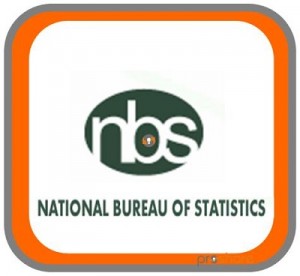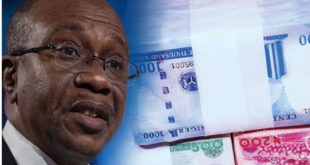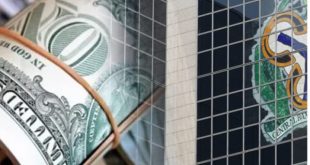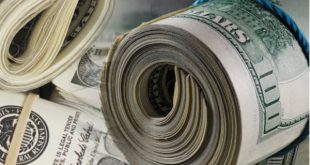 The Consumer Price Index, which measures the rate of inflation in the country, rose by 18.48 per cent in November, figures released by the National Bureau of Statistics on Thursday revealed.
The Consumer Price Index, which measures the rate of inflation in the country, rose by 18.48 per cent in November, figures released by the National Bureau of Statistics on Thursday revealed.
The NBS said in the CPI report that the 18.48 per cent inflation rate was 0.15 percentage points higher than the 18.33 per cent recorded in October.

The report blamed the rise in inflation rate on increases recorded in the housing, water, electricity, gas and clothing materials sectors.
The report read in part, “The CPI, which measures inflation, increased by 18.48 per cent (year-on-year) in November 2016, 0.15 percentage points higher than the rate recorded in October (18.33 per cent).

“During the month, the highest increases were seen in housing, water, electricity, gas and other fuels, clothing materials, books, liquid fuel, and passenger transport by air, motorcycles and shoes.”

The report stated that communications and insurance indexes recorded the slowest pace of increase in November, rising at 5.61 per cent and 6.76 per cent year-on-year, respectively.
It said the food sub index increased by 17.19 per cent year-on-year in November, up by 0.10 percentage points from the 17.09 per cent recorded in October.
The Statistician General of the Federation and Chief Executive, NBS, Dr. Yemi Kale, said in an interview shortly after receiving an award from the Association of Northern Nigerian Students that from the recent data released by the bureau, it was obvious that the economy was beginning to recover.
For instance, he said the rate of increase in inflation had been slower that it was during the first eight months of this year.
This, he noted, was an indication that the policies of the government had started yielding results.
“If you look at the rate of inflation, it’s been rising at a slower rate for the last four months and so, while it is rising, the pace of increase has been slow; which suggests that the problems are being gradually resolved,” he stated.
The NBS also on Thursday said the country’s unemployment rate had risen from 13.3 per cent in the second quarter of this year to 13.9 per cent at the end of the third quarter.
The bureau stated this in the unemployment report, which was released in Abuja.
In the report, the bureau said the number of economically active people increased from 106.69 million in the second quarter to 108.03 million in the third quarter.
It added that during the period, a total number of 554,311 fresh people out of those that joined the labour force were unemployed in the third quarter.
This, according to the report, represents a 1.26 per cent increase over the previous quarter, and a 3.57 per cent increase when compared to the corresponding third quarter of 2015.
The report read in part, “The number of underemployed in the labour force increased by 501,074 or 3.25 per cent, resulting in an increase in the underemployment rate from 19.3 per cent in Q2 2016 to 19.7 per cent (15.9 million persons) in Q3 2016.
“This is a marginal increase of 0.4 percentage points between quarters two and three of 2016, and shows a steady rise in the rate since Q3 of 2015.
“During the reference period, the number of unemployed in the labour force increased by 554,311 persons, resulting in an increase in the national unemployment rate to 13.9 per cent in Q3 2016 from 13.3 per cent in Q2.”
The report stated that unemployment and underemployment were highest for persons in the labour force between the ages of 15-24 and 25-34, which represented the youth population.
 MMS PLUS NG – Maritime, Aviation, Business, Oil and Gas News Online Newspaper with coverage in Maritime, Oil and Gas, Aviation, Power and Energy as well as Financial News
MMS PLUS NG – Maritime, Aviation, Business, Oil and Gas News Online Newspaper with coverage in Maritime, Oil and Gas, Aviation, Power and Energy as well as Financial News









